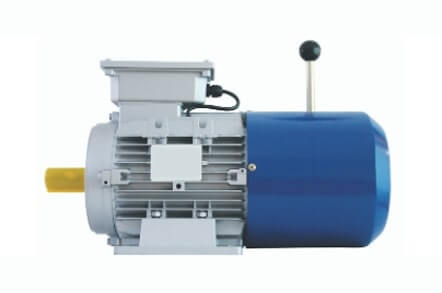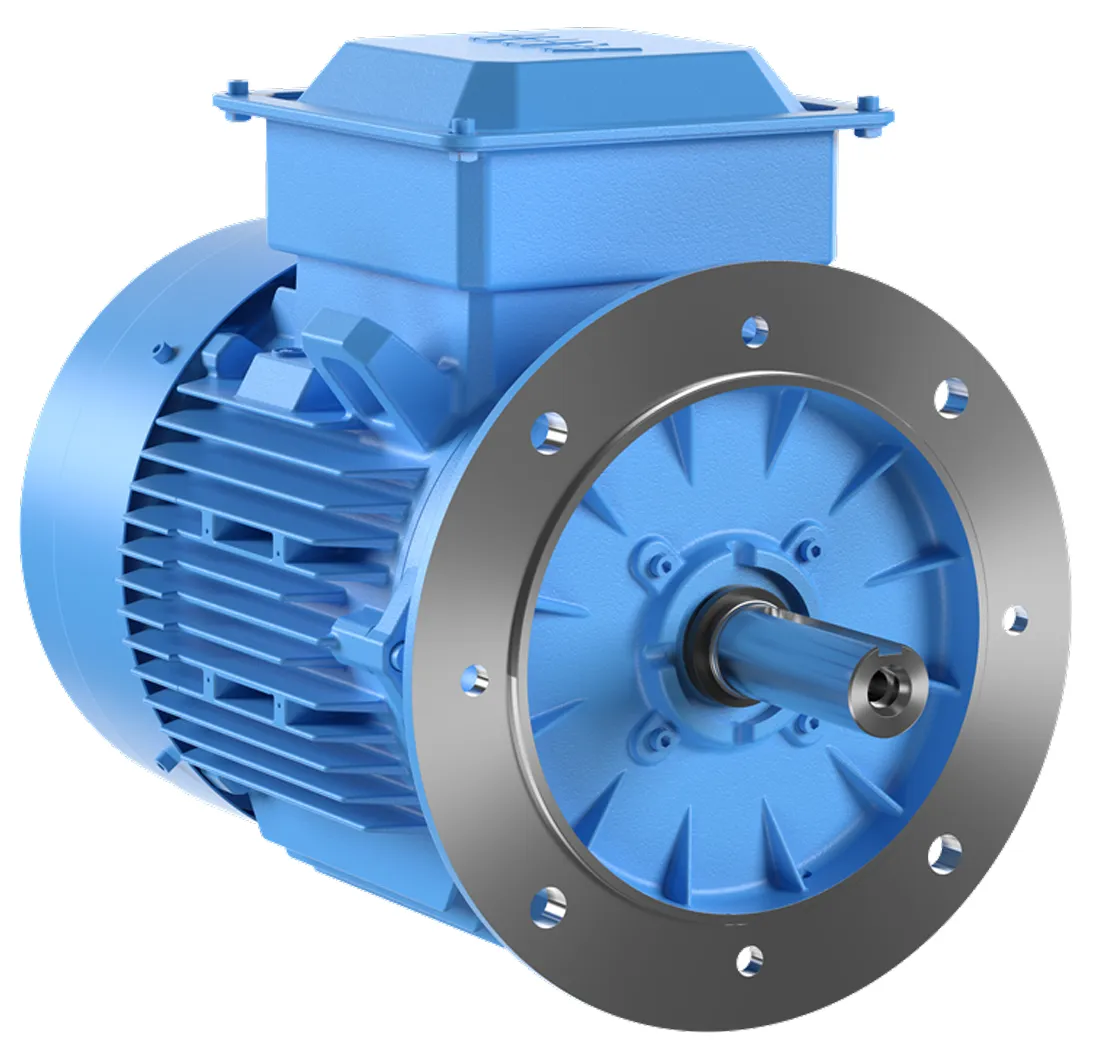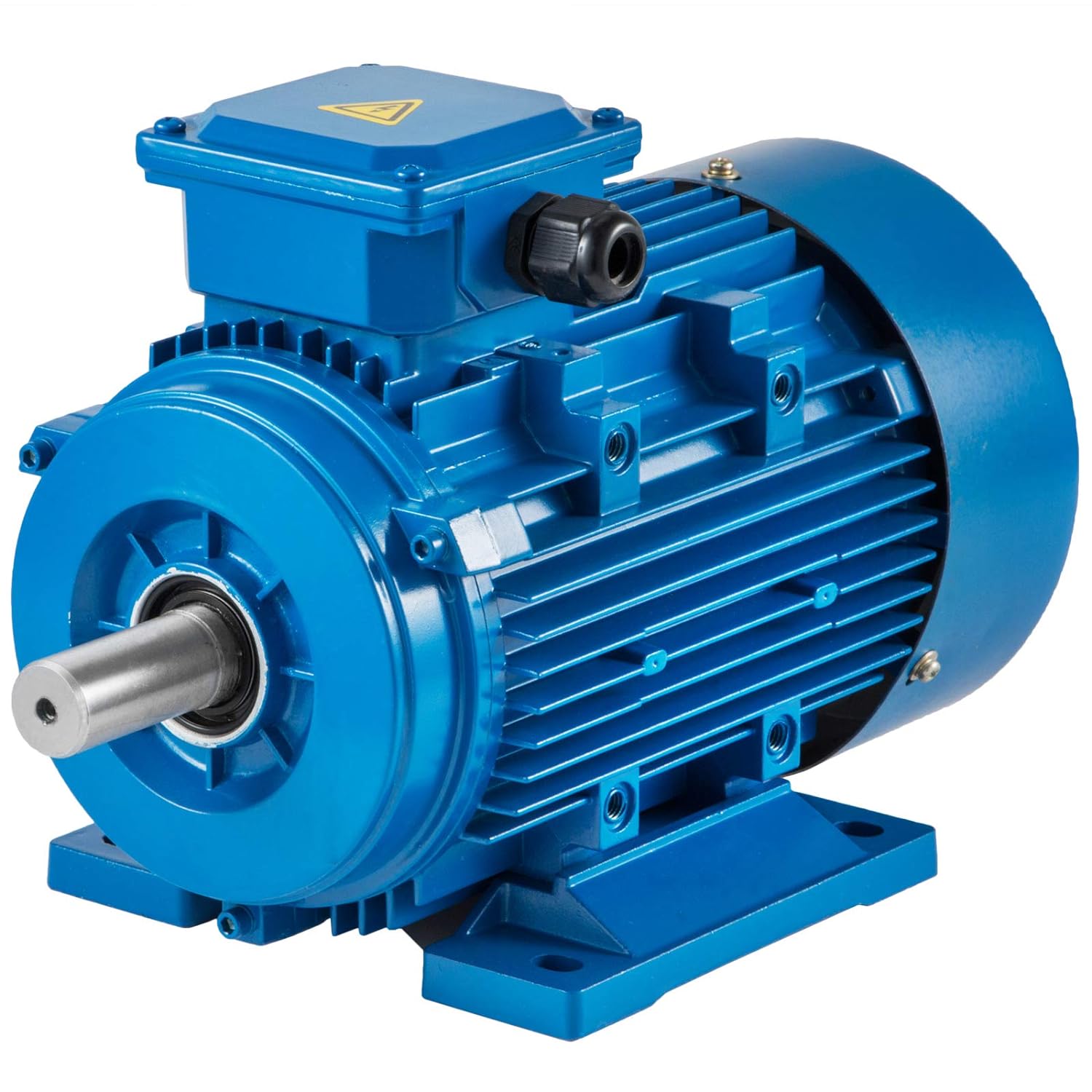Product Description
1.Product tyep
130# 850W 380V AC Permanent Magnet Synchronous Servo motor with brake;Encoder can be choosed according to your requirements; High-end motor application fields cover industrial robots, AGVs, intelligent factories, CNC, and 3C, among others.
2.OEM&ODM are all acceptable
3.Our advantages:
3.1Having an excellent R&D team,
3.2. RELIABILITY FIRST , QUALITY CONTROL MANAGEMENT FIRST.
3.3.SHORT LEAD TIME (Conventional products about one-week)
3.4 COST-EFFECTIVE (competitive price )
3.5 Certification:ISO9001, CE; and our products meet RoHS requirements.
3.6 With a one-year warranty (under normal use)
4.Product features
4.1. The entire series adopts a 5-pair pole scheme;
4.2. Compared to competitors in the same industry, the product size has a shorter advantage;
4.3. The rotor adopts embedded magnetic steel, without the risk of magnetic steel falling off;
4.4. Encoders can be matched with various types, and the company has its own encoder products for matching use
Compared to peers, it has supporting advantages.
4.5. The appearance of the motor is available in silver and black, with a focus on black.
5.Technical indicators
| Rated output power | 850 | W |
| Number of poles | 10 | P |
| rated voltage | 380 | VAC |
| Rated speed | 1500 | r/min |
| Maximum speed | 3000 | r/min |
| Rated torque | 5.4 | N.m |
| Instantaneous maximum torque | 14.2 | N.m |
| Rated Current | 3.1 | A(rms) |
| Instantaneous maximum current | 8.5 | A(rms) |
| Line back EMF | 111.6 | V/krpm |
| Torque coefficient | 1.846 | N.m/A |
| Moment of inertia | Kg.sq.m.10-4 | |
| Line resistance | 2.6 | ohm |
| Line inductance | 36 | mH |
| Brake rated voltage | 24V+2.4V | VDC |
| Brake rated power | 23 | W |
| Brake static torque | ≥15 | N.m |
| Brake moment of inertia | 9.584 | Kg.sq.m.10-4 |
| Weight | 8 | Kg |
| Feedback element | Optional | |
| Temperature sensor | NC |
6.Functional features
| Working hours | Continuous |
| Heat resistance | Class F |
| Body color | Black |
| Cooling method | Natural cooling |
| Vibration level | V15 |
| Connection method | Direct connection |
| Installation method | Flange installation |
| Excitation method | Permanent magnet |
| Protection method | Fully enclosed ,self-cooling IP65 (except shaft penetration) |
| Rotation method | Counterclockwise rotation(CCW) as seen from the extension end of the motor shaft |
7.Outside view(unit:mm)
8.Dimensions
9.Model Explanation
10.Servo motor wiring definition
11.Company Profile
12.Development history
13.Motor overview
14.Certificate patent display
15.FAQ
Payments
1) We can accept EXW, FOB
2) Payment must be made before shipment.
3) Import duties, taxes and charges are not included in the item price or shipping charges. These charges are the buyer’s responsibility.
Shipping
1) We only ship to your confirmed address. Please make sure your shipping address is correct before purchase.
2) Most orders will be shipped out within 3-7 working days CHINAMFG payment confirmation.
3) Shipping normally takes 7-25 working days. Most of the items will delivery in 2 weeks, while there will be a delay for something we cannot control (such as the bad weather). If it happens, just contact us, we will help you check and resolve any problem.
4) Please check the package CHINAMFG receipt, if there are some damages, please contact us immediately.
Feedback & Refund
1) Feedback is important to us, if you have any problem with our products, please contact us, our technician will give you useful advises.
2) When you have the parcel and not satisfied with the goods or it is other problem, please tell us immediately, and provide us a photo showing the detail.
3) Any reason requiring for all refund. Items must be in original condition and no physical damage. Buyer responsible for all shipping cost.
If you need more information, please contact with us. We will attach great importance to your any problems.Hope we could establish a long-term effective cooperation.
/* January 22, 2571 19:08:37 */!function(){function s(e,r){var a,o={};try{e&&e.split(“,”).forEach(function(e,t){e&&(a=e.match(/(.*?):(.*)$/))&&1
| Application: | Universal, Industrial, Household Appliances, Power Tools |
|---|---|
| Operating Speed: | Constant Speed |
| Excitation Mode: | Permanent Magnet |
| Function: | Control |
| Casing Protection: | Protection Type |
| Number of Poles: | 10 |
| Samples: |
US$ 153/Piece
1 Piece(Min.Order) | |
|---|
| Customization: |
Available
|
|
|---|

Can AC motors be used in both residential and commercial settings?
Yes, AC motors can be used in both residential and commercial settings. The versatility and wide range of applications of AC motors make them suitable for various environments and purposes.
In residential settings, AC motors are commonly found in household appliances such as refrigerators, air conditioners, washing machines, fans, and pumps. These motors are designed to meet the specific requirements of residential applications, providing reliable and efficient operation for everyday tasks. For example, air conditioners utilize AC motors to drive the compressor and fan, while washing machines use AC motors for agitating and spinning the drum.
In commercial settings, AC motors are extensively used in a wide range of applications across different industries. They power machinery, equipment, and systems that are crucial for commercial operations. Some common examples include:
- Industrial machinery and manufacturing equipment: AC motors drive conveyor belts, pumps, compressors, mixers, fans, blowers, and other machinery used in manufacturing, production, and processing facilities.
- HVAC systems: AC motors are used in commercial heating, ventilation, and air conditioning (HVAC) systems to drive fans, blowers, and pumps for air circulation, cooling, and heating.
- Commercial refrigeration: AC motors are utilized in commercial refrigeration systems for powering compressors, condenser fans, and evaporator fans in supermarkets, restaurants, and cold storage facilities.
- Office equipment: AC motors are present in various office equipment such as printers, photocopiers, scanners, and ventilation systems, ensuring their proper functioning.
- Transportation: AC motors are used in electric vehicles, trams, trains, and other forms of electric transportation systems, providing the necessary propulsion.
- Water and wastewater treatment: AC motors power pumps, mixers, and blowers in water treatment plants, wastewater treatment plants, and pumping stations.
The adaptability, efficiency, and controllability of AC motors make them suitable for a wide range of residential and commercial applications. Whether it’s powering household appliances or driving industrial machinery, AC motors play a vital role in meeting the diverse needs of both residential and commercial settings.

Where can individuals or businesses find reliable information on selecting, installing, and maintaining AC motors?
When seeking information on selecting, installing, and maintaining AC motors, individuals and businesses can refer to various reliable sources. These sources provide valuable guidance, recommendations, and best practices related to AC motors. Here are some places where one can find reliable information:
- Manufacturer’s Documentation: AC motor manufacturers often provide detailed documentation, including product catalogs, technical specifications, installation guides, and maintenance manuals. These documents offer specific information about their motors, such as performance characteristics, electrical requirements, mounting instructions, and recommended maintenance procedures. Manufacturers’ websites are a common source for accessing these resources.
- Industry Associations: Industry associations related to electrical engineering, motor manufacturing, or specific applications (e.g., HVAC, pumps, or industrial machinery) can be excellent resources for reliable information. These associations often publish technical articles, guidelines, and standards that cover a wide range of topics, including motor selection, installation practices, efficiency standards, and maintenance recommendations. Examples of such associations include the National Electrical Manufacturers Association (NEMA), the Institute of Electrical and Electronics Engineers (IEEE), and the Air Conditioning, Heating, and Refrigeration Institute (AHRI).
- Professional Electricians and Engineers: Consulting with professional electricians or electrical engineers who specialize in motor applications can provide valuable insights. These professionals possess practical knowledge and experience in selecting, installing, and maintaining AC motors. They can offer personalized advice based on specific project requirements and industry best practices.
- Energy Efficiency Programs and Agencies: Energy efficiency programs and agencies, such as government departments, utility companies, or environmental organizations, often provide resources and guidance on energy-efficient motor selection and operation. These programs may offer information on motor efficiency standards, rebate programs for high-efficiency motors, and energy-saving practices. Examples include the U.S. Department of Energy (DOE) and its Energy Star program.
- Online Technical Forums and Communities: Online forums and communities focused on electrical engineering, motor applications, or specific industries can be valuable sources of information. Participating in these forums allows individuals and businesses to interact with experts, discuss motor-related topics, and seek advice from professionals and enthusiasts who have firsthand experience with AC motors.
- Books and Publications: Books and technical publications dedicated to electrical engineering, motor technology, or specific applications can provide comprehensive information on AC motors. These resources cover topics ranging from motor theory and design principles to practical installation techniques and maintenance procedures. Libraries, bookstores, and online retailers offer a wide selection of relevant publications.
When accessing information from these sources, it is important to ensure that the information is up-to-date, reliable, and relevant to the specific application or requirements. Consulting multiple sources and cross-referencing information can help verify accuracy and establish a well-rounded understanding of AC motor selection, installation, and maintenance.

Are there different types of AC motors, and what are their specific applications?
Yes, there are different types of AC motors, each with its own design, characteristics, and applications. The main types of AC motors include:
- Induction Motors: Induction motors are the most commonly used type of AC motor. They are robust, reliable, and suitable for a wide range of applications. Induction motors operate based on the principle of electromagnetic induction. They consist of a stator with stator windings and a rotor with short-circuited conductive bars or coils. The rotating magnetic field produced by the stator windings induces currents in the rotor, creating a magnetic field that interacts with the stator field and generates torque. Induction motors are widely used in industries such as manufacturing, HVAC systems, pumps, fans, compressors, and conveyor systems.
- Synchronous Motors: Synchronous motors are another type of AC motor commonly used in applications that require precise speed control. They operate at synchronous speed, which is determined by the frequency of the AC power supply and the number of motor poles. Synchronous motors have a rotor with electromagnets that are magnetized by direct current, allowing the rotor to lock onto the rotating magnetic field of the stator and rotate at the same speed. Synchronous motors are often used in applications such as industrial machinery, generators, compressors, and large HVAC systems.
- Brushless DC Motors: While the name suggests “DC,” brushless DC motors are actually driven by AC power. They utilize electronic commutation instead of mechanical brushes for switching the current in the motor windings. Brushless DC motors offer high efficiency, low maintenance, and precise control over speed and torque. They are commonly used in applications such as electric vehicles, robotics, computer disk drives, aerospace systems, and consumer electronics.
- Universal Motors: Universal motors are versatile motors that can operate on both AC and DC power. They are designed with a wound stator and a commutator rotor. Universal motors offer high starting torque and can achieve high speeds. They are commonly used in applications such as portable power tools, vacuum cleaners, food mixers, and small appliances.
- Shaded Pole Motors: Shaded pole motors are simple and inexpensive AC motors. They have a single-phase stator and a squirrel cage rotor. Shaded pole motors are characterized by low starting torque and relatively low efficiency. Due to their simple design and low cost, they are commonly used in applications such as small fans, refrigeration equipment, and appliances.
These are some of the main types of AC motors, each with its unique features and applications. The selection of an AC motor type depends on factors such as the required torque, speed control requirements, efficiency, cost, and environmental conditions. Understanding the specific characteristics and applications of each type allows for choosing the most suitable motor for a given application.


editor by CX 2024-05-02